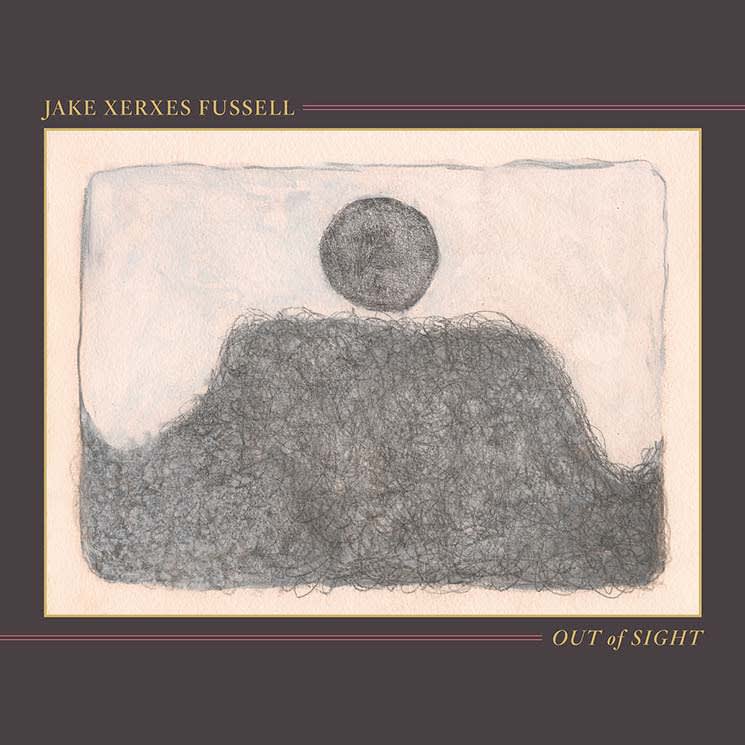Jake Xerxes Fussell's Out of Sight both preserves and extends the history of folk music in the American South. His ability to preserve comes from impressive historical chops — his father, Fred C. Fussell, was a photographer and curator whose interest was in the material culture of the South. He shares a middle name with legendary Georgia potter DX Gordy. Born from this kind of milieu — both academic (he has a degree from Ole Miss in Southern Studies) and cultural (his bio drops names of country singers, banjoists, and rodeo riders) — proves to an audience that he can preserve work that needs preserving.
The songs are often a couple hundred years old — he doesn't do anything like the Carolina Chocolate Drops' version of Blu Cantrell's "Hit Up Style." He extends this style by pure formal skill; Fussell is a fine and slippery player, his voice moving through a full band, liberating music that might have been an academic exercise.
There are songs here that I am not sure would have been recorded elsewhere, including the lead single, "The River St. Johns," where Nathan Bowles' drums swing low and soft, introducing a delicate piano and Libby Rodenbough's backup vocals. A song where a fisherman tells of his wares, it becomes more about what prosperity might mean than a single fish bought in the evening. Every time Fussell sings the give-and-take chorus, "they are just from the river St. John's this morning" — when the song ends, "I have got fresh fish this morning, they are gilded with gold, and they might have a diamond in their mouth" — the gold feels like a fishmonger's come on, but also a singer's invitation to novel discoveries.
The curation happens in other spaces. There is a gorgeous version of the murder ballad "The Rainbow Willow." The excellent, and charmingly written, liner notes limns the song's history: the Ozarks and Appalachia, from the song catcher and performer Jean Ritchie, all the way down to contemporary performers House and Land. James Anthony Wallace plays the organ on that track, and it is a subtle, almost like an accordion, inhale and exhale, shallow lungs left without breath.
There are less obscure songs— his version of "Jubilee," a song beloved for decades in the Carolinas, is rueful and mournful. The song rests on the chorus "Swing and Turn, Jubilee," that suggests the swinging and turning are less dancing, and perhaps something more violent.
The album isn't perfect; it is a little too slow in spaces, a little too quiet, and sometimes it is too serious. Fussell is capable of being goofy, but even the humour here never rises above a wry chuckle. Maybe on his next album we will get a social tune or two.
(Paradise of Bachelors)The songs are often a couple hundred years old — he doesn't do anything like the Carolina Chocolate Drops' version of Blu Cantrell's "Hit Up Style." He extends this style by pure formal skill; Fussell is a fine and slippery player, his voice moving through a full band, liberating music that might have been an academic exercise.
There are songs here that I am not sure would have been recorded elsewhere, including the lead single, "The River St. Johns," where Nathan Bowles' drums swing low and soft, introducing a delicate piano and Libby Rodenbough's backup vocals. A song where a fisherman tells of his wares, it becomes more about what prosperity might mean than a single fish bought in the evening. Every time Fussell sings the give-and-take chorus, "they are just from the river St. John's this morning" — when the song ends, "I have got fresh fish this morning, they are gilded with gold, and they might have a diamond in their mouth" — the gold feels like a fishmonger's come on, but also a singer's invitation to novel discoveries.
The curation happens in other spaces. There is a gorgeous version of the murder ballad "The Rainbow Willow." The excellent, and charmingly written, liner notes limns the song's history: the Ozarks and Appalachia, from the song catcher and performer Jean Ritchie, all the way down to contemporary performers House and Land. James Anthony Wallace plays the organ on that track, and it is a subtle, almost like an accordion, inhale and exhale, shallow lungs left without breath.
There are less obscure songs— his version of "Jubilee," a song beloved for decades in the Carolinas, is rueful and mournful. The song rests on the chorus "Swing and Turn, Jubilee," that suggests the swinging and turning are less dancing, and perhaps something more violent.
The album isn't perfect; it is a little too slow in spaces, a little too quiet, and sometimes it is too serious. Fussell is capable of being goofy, but even the humour here never rises above a wry chuckle. Maybe on his next album we will get a social tune or two.
